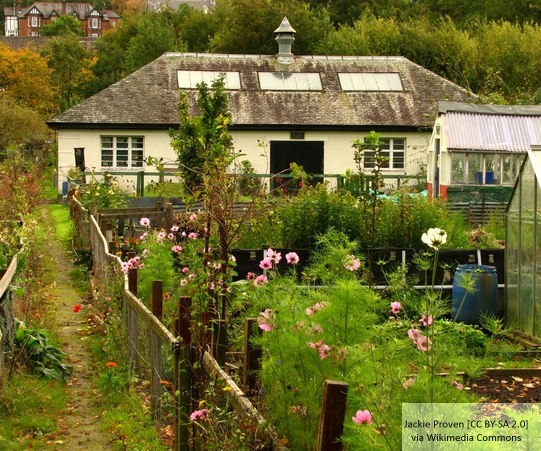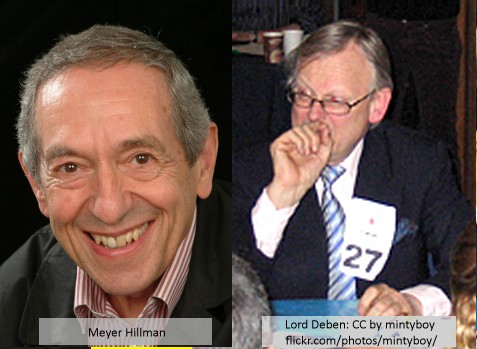posted by
Geoff on 8th Dec 2014
8th,Dec
This is a boring piece on my complaints to the BBC –
I wouldn’t read it – but it’s now public and the topic important.
The BBC supports “economic growth” and implies growth is the only way of
creating jobs: No mention of the damage “growth” does to the climate
or other ways of creating jobs.
The BBC asks for a example of where it never says this (???) –
Logicians and lawyers may read on.
The BBC imply: Only economic growth can create jobs.
…Sunday 5th October… CAS-2951985-CXGM61 …Complaint
All major political parties and business are pushing for economic growth. This is reported widely on the BBC and in other media.
The BBC has extensive coverage of business and presents economic growth as essential for the creation of jobs. The BBC also promotes economic growth as “good thing”. Every hour of every day there is business news: Climate news is much rarer and of mixed quality (I will make a separate complaint on this.) There is hardly any mention of the fact that economic growth brings more environmental hazards, such as greenhouse gas emissions, except occasionally that “green growth” is a possibility.
By leaving the underlying assumption that jobs depend only on growth, the BBC is promoting a falsehood. The green agenda is being buried by growth propaganda. “Public purposes: Sustaining citizenship and civil society” says “You can trust the BBC to provide high-quality news, current affairs and factual programming that keeps you informed and supports debate about important issues and political developments in an engaging way.”
In leaving the public ill-informed the BBC is failing its guidelines. For background see:
Job creation doesn’t need economic growth
Greenwash from Stern?
“Public purposes: Sustaining citizenship and civil society”
… Monday 6th October… CAS-2954926-6XZMFL… Reply
continue reading…
posted by
Geoff on 30th Nov 2014
30th,Nov

Travel information and house prices for places near York. Using the same criteria, a 3 bedroomed house in York is about £190,000. Selby is 30% cheaper than York… Somewhere very cheap in Bridlington: A very well presented two bedroom detached chalet with modern weather resistant cladding. Only £39,950 – but you won’t be allowed to stay all year. Why? Yes. Why?… Image and this caption added March 2018.
This is an email to York councillors on a housiing report by Ove Arup in May 2013.
Arup’s report does not sufficiently address two key issues:
(i) the effect of planning permission on house prices and
(ii) the restrictions that prevent low-cost housing.
Dear Councillor,
The Arup Report: Will York exile the poor?
The report is Housing Requirements in York, Assessment of the Evidence on Housing Requirements in York by Ove Arup & Partners Ltd.
The report raises concerns but provides insufficient solutions. I have copied and annotated a section of the report and suggested potential paths to solutions. The telling part of the report is in section 6.3 Broader relationships and impacts. I have added numbered headlines (in bold). The text from the Arup report are in green.
6.3 Broader relationships and impacts
1. First time buyers cannot even afford lower priced houses
Although headline prices have remained in line with national trends in York, lower quartile priced housing has become less affordable suggesting that established home owners are probably compromising their choices at the lower end of the market, probably in homes that were previously available to first time buyers.
2. Older, more affluent people will displace traditional population.
The consequences of such changes are complex, but are likely to include the development of an increasing proportion of older, more affluent (and socially conservative) population over time. There will also be displacement of traditional population, perhaps to locations such as Selby or Leeds as gentrification becomes more widespread.
continue reading…
posted by
Geoff on 23rd Nov 2014
23rd,Nov
Last Wednesday’s debate at York University (@YorkUnion #BenefitsYork) has prompted me to post something from an old website section I posted a decade ago. Incidentally, I read the Guardian every day as a schoolboy in 1960, when it was the Manchester Guardian. The first edition arrived mid-morning in Rochester, Kent with the legendary typos.
How do Guardian readers rob the poor?
These days I read the Guardian less but it still is one of the information sources I trust the most – even more than the BBC. Here is the introduction from Guardian readers rob the poor.
continue reading…
posted by
Geoff on 30th Oct 2014
30th,Oct
Complaints made to the BBC
The BBC imply: Only economic growth can create jobs.
…Sunday 5th October… CAS-2951985-CXGM61 …Complaint
All major political parties and business are pushing for economic growth. This is reported widely on the BBC and in other media.
The BBC has extensive coverage of business and presents economic growth as essential for the creation of jobs. The BBC also promotes economic growth as “good thing”. Every hour of every day there is business news, climate news is much rarer and of mixed quality (I will make a separate complaint on this.) There is hardly any mention of the fact that economic growth brings more environmental hazards, such as greenhouse gas emissions, except occasionally that “green growth” is a possibility.
By leaving the underlying assumption that jobs depend only on growth, the BBC is promoting a falsehood. The green agenda is being buried by growth propaganda. “Public purposes: Sustaining citizenship and civil society” says “You can trust the BBC to provide high-quality news, current affairs and factual programming that keeps you informed and supports debate about important issues and political developments in an engaging way.”
In leaving the public ill-informed the BBC is failing its guidelines. For background see:
Job creation doesn’t need economic growth
Greenwash from Stern?
“Public purposes: Sustaining citizenship and civil society
… Monday 6th October… CAS-2954926-6XZMFL… Reply
Thanks for contacting us.
I understand you feel the BBC is reporting that all major political parties and business are pushing for economic growth but fail to mention that economic growth brings more environmental hazards such as greenhouse gas emissions. I also note your comments that by leaving the underlying assumption that jobs depend only on growth the BBC is promoting a falsehood.
The time given to each issue or report in the news is frequently a very difficult decision for our editors. Our audiences don’t look at events in the same way and there’s no one universal news agenda that applies to all. The time given has to be selective and no matter how carefully such decisions are made, news editors are always aware that some people may disagree with them.
Essentially this is a judgement call rather than an exact science but BBC News does appreciate the feedback when viewers and listeners feel we may have neglected a story or focused too much on a particular story or item.
Thank you again for contacting us, we value your feedback about BBC News. All complaints are sent to senior management and programme makers every morning and I included your points in this overnight report. These reports are among the most widely read sources of feedback in the BBC and ensures that your complaint has been seen by the right people quickly. This helps inform their decisions about current and future programmes.
continue reading…
posted by
Geoff on 28th Oct 2014
28th,Oct
Questions I put on Corey Bradshaw’s blog, Conservation Bytes, after his recent paper.
The abstract for the paper, “Human population reduction is not a quick fix for environmental problems”, starts:
The inexorable demographic momentum of the global human population is rapidly eroding Earth’s life-support system. There are consequently more frequent calls to address environmental problems by advocating further reductions in human fertility… Assuming a continuation of current trends in mortality reduction, even a rapid transition to a worldwide onechild policy leads to a population similar to today’s by 2100.
My questions and comment …
continue reading…
posted by
Geoff on 19th Oct 2014
19th,Oct
The Green Settlement Handbook (Part 1)

Eco settlements: Old ideas have failed
New settlements in developed countries damage the world
In developed countries, new settlements damage the world. Building them brings materials from the world marketplace, causing destruction of nature and atmospheric pollution. The greenhouse gasses emitted by sourcing these materials cause the emission of large amount of greenhouse gasses.
The lifestyles of the residents in new developments are also damaging. Even if these newcomers wanted to live a world-friendly life-style, they would find it impossible because the other residents are mostly the affluent who live high-carbon lifestyles with a high level of car ownership. Consequently these developments do not have the facilities and organisation necessary for low-carbon lifestyles such as local shops and public transport.
Cheating the young
In Britain, new settlements are a step in a process that cheats those that do not own property – particularly the young. New housing is usually sold at many times the cost of the actual bricks and mortar, while the price of property keeps rising (with the occasional hiccup) mostly to the benefit of the old and affluent.
continue reading…
posted by
Geoff on 30th Sep 2014
30th,Sep
Ignorance of embodied carbon
Most of the examples of “green building”, I have seen have an element of greenwash that even fools the most eminent experts. The late Professor Sir Peter Hall, Bartlett Professor of Planning and Regeneration at UCL gave the lecture, ECO-TOWNS, Will they be Eco-?, Can they become Towns?, in the 2008 Lecture Series What is Land For?. He first example was BedZed. His summary included:
• UK’s largest eco-village
• 100 homes, community facilities and workspace for 100 people
• Heating requirements: 10% typical home
• 60% recycling aim
• Target fossil fuel car miles: 50% national average
• Food delivery and allotments
continue reading…
posted by
Geoff on 29th Sep 2014
29th,Sep

The parable of the smoking carriages: #CarFreeLiving #PedestrianApartheid
Living standards and well-being
As mentioned in Greenwash from Stern? economic growth and “increased living standards” are often measured as GDP per capita but in developed countries these increases have little or no effect on well being. Richard Wilkinson’s Ted Talk shows the average well-being in developed countries is not dependent any longer on national income and economic growth and societies that are more equal are healthier and happier ones.
In his talk Richard Wilkinson uses the example of Denmark as a society of happy, healthy people where the income distribution is more equal than other developed economies. He also points out that, in Denmark, it is possible to rise up the social ladder very much easier than in the USA. His advice to the people who wish to live the American Dream leave the USA and go to Denmark.
continue reading…
posted by
Geoff on 24th Sep 2014
24th,Sep
The Physics-Politics Gap
Lord Deben was one of the headliners at the 2013 annual meeting of the Parliamentary Renewable and Sustainable Energy Group. Lord Deben (“the best Environment Secretary we’ve ever had”) is now Chair of the Committee on Climate Change. He spoke about progress towards the UK’s targets on carbon emissions. In the Q&A, Mayer Hillman of the Policy Studies Institute, suggested that, despite reducing carbon emissions, climate change required very much more.
Lord Deben said there was only so much that was politically possible. As I was waiting in the lobby to buttonhole him, I heard him say something more explicit: Meyer was not being realistic – there were political limits to what could be achieved.
Mayer’s point was that the laws of physics are greater than the laws of politics so we had to do much more to avert climate disaster. The Zero Carbon Britain report has called this the Physics-Politics-Gap.

Mayer Hillman: Climate change requires very much more
Lord Deben: There are political limits to action
Lord Deben may be right that there are political limits to action on climate and Mayer may also be right saying that won’t be enough. This would mean that the Physics-Politics-Gap cannot be closed. The end-of-nearly-all-life-on-Earth scenario presented by LastHours.Org is actually looking plausible.
continue reading…
posted by
Geoff on 7th Sep 2014
7th,Sep
This is evidence to the Treasury Subcommittee written in 2007 but still relevant.
See http://www.publications.parliament.uk/pa/cm200708/cmselect/cmtreasy/231/231we20.htm
Executive summary:
The UK generates a small percentage of the world’s CO2. The best role for the UK is to show the rest of the world that pleasant environmentally friendly lifestyles are possible. Economic mechanisms such as earmarked taxes are necessary but it will be necessary to go beyond purely economic disciplines.
Large budgets for education and promotion are necessary to gain public acceptance. So are large environmental lifestyle projects such as model settlements. The finance can be found within the planning system. It should be recognised that the planning system creates very large amounts of wealth, which can be traded on an international scale. It is possible that existing development corporation legislation can be used to this effect.
continue reading…





